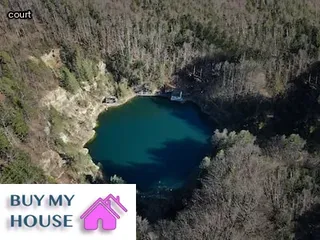Adverse possession is a legal concept that applies in Maryland and other states. It grants squatters the right to take ownership of property they have been occupying for an extended period of time.
Generally, squatters can gain title to a property if they meet certain criteria, such as demonstrating they have been in open, notorious, exclusive and continuous possession of the land for at least twenty years. In Maryland, the statute of limitations is twenty-one years and requires proof of payment of taxes on the property during those twenty one years.
Squatters must also prove that their occupation was hostile: that is, without permission from or knowledge by the owner. The squatter must show evidence that he or she has made improvements to the land, has paid taxes on it, and has established dominion over it through physical acts such as fencing off the property or planting crops on it.
Adverse possession laws vary from state to state; landlords should stay informed about local laws before attempting to evict a squatter from their property.

In Maryland, squatting is illegal and can lead to legal consequences for both the squatter and the landlord. Squatting occurs when someone occupies a property without consent from the owner or legal occupant.
It is considered trespassing and is a form of theft, as the squatter is taking possession of a property that does not belong to them. Landlords need to be aware of their rights and take steps to protect their properties from squatters.
If they are aware of a squatter on their property, they should contact local law enforcement immediately. The police will investigate the situation and work with the landlord to ensure that any necessary actions are taken to remove the squatter.
In cases where squatters have been living in properties unlawfully for an extended period of time, they may be entitled to certain rights under Maryland law, such as being able to remain in possession until evicted through a court order or settlement agreement. A landlord needs to be aware of these potential implications before attempting any type of eviction process.
The concept of Color of Title is an important factor to consider when understanding squatters' rights in Maryland. This includes the ability to transfer ownership and possession of a property from one person to another through a series of legal transactions.
In order for this transfer of ownership to be valid, it must meet certain criteria set forth by the state. These criteria involve proving that the transferor had the right to make such a transfer, that the transferee had knowledge or notice of the transfer, and that the transferee then took possession or occupied the property in question.
If these criteria are met, then Color of Title is established and squatters may be legally protected in their occupancy of the property. Landlords should be aware that Color of Title can also give squatters certain duties, such as making improvements on the property or paying taxes on it.
It is important for landlords to understand how Color of Title affects squatters rights when dealing with issues related to tenants occupying their property without permission.

When it comes to squatter's rights in Maryland, it is possible for a landlord to legally evict a squatter, although there are specific legal steps they must follow. Firstly, a landlord must be able to prove that they have the legal right to use and possess the property in question.
This means having written proof of ownership or an active lease agreement. In addition, landlords must provide written notice of their intent to evict the squatter from their property as well as copies of relevant legal documents such as court orders and eviction notices.
Once these steps have been completed, landlords can proceed with the actual eviction process which involves seeking assistance from local law enforcement or filing a lawsuit in civil court. Depending on the situation, landlords may even be able to get help from organizations like Legal Aid or other community-based groups who specialize in providing assistance with evictions of squatters.
Understanding all of these legal considerations is essential for any property owner who wishes to successfully evict a squatter from their land in Maryland.
In Maryland, it is important for landlords to understand the difference between an unlawful detainer and squatters rights. An unlawful detainer is a legal action taken by a landlord to evict a tenant if they have breached the terms of a rental agreement or stayed beyond the lease period.
Squatters rights are different in that they refer to a situation where someone has occupied property without permission from a landlord or owner. This can happen when an individual lives in an abandoned property, pays rent to an unofficial landlord, or occupies the land without anyone's knowledge.
In some cases, squatters may be able to establish legal rights over time through adverse possession laws. However, this process can take years and requires certain conditions to be met in order for it to be successful.
Landlords should be aware of these distinctions so that they can ensure their tenants are not taking advantage of them in any way.

As a landlord in Maryland, it is important to understand your rights when it comes to dealing with squatters. Squatting is when someone occupies a property without the owner's permission.
To protect yourself and your property from potential squatting issues, there are several strategies you can put into practice. You need to be aware of who has access to your property and make sure that any vacant properties or rooms are well secured against trespassers.
Installing a strong lock on doors and windows, as well as motion-sensing lights can be effective deterrents against squatters. Regularly check the locks and make sure that they're working properly.
Make sure to also take note of any suspicious activity around the property and report it immediately to the police if necessary. Finally, ensure that tenants have valid leases before moving in, as this will give them clear legal rights and responsibilities for occupying the property.
Taking these steps can help landlords in Maryland protect their properties from squatters and keep their investments safe.
In Maryland, it is possible for a tenant to eventually become a squatter if the landlord does not take the appropriate steps to protect their rights as property owner. Squatting means occupying a space without the legal right to do so and can be an issue when tenants fail to pay rent or vacate at the end of a lease.
To prevent this from occurring, landlords must ensure that all tenancy agreements are properly written, signed and dated by both parties, and that they follow all state laws regarding eviction proceedings in order to legally remove a tenant who has not paid rent or has overstayed their tenancy period. Additionally, landlords should remain in communication with their tenants throughout the entire tenancy agreement and should provide timely notice if there is an issue that needs resolution.
Taking these steps can help protect landlords from potential squatting issues in Maryland.

In Maryland, landlords are entitled to take legal action against a squatter if they have been occupying property that does not belong to them. Landlords should begin by sending a formal notice of eviction to the squatter, demanding they leave immediately.
If this is ignored, then the landlord can pursue further legal action by filing a complaint in court and seeking a writ of possession. This will result in the sheriff's office being requested to remove the squatter from the property.
Additionally, if it can be proven that the squatter has caused damages or stolen any items from the property, criminal charges may also be filed against them. Landlords should always ensure they have all necessary evidence and paperwork before attempting to take any legal steps towards evicting a squatter in order to ensure a successful outcome.
Allowing a squatter to remain on a property can have both positive and negative consequences. On the one hand, if a landlord allows a squatter to stay, they may be able to avoid costly eviction proceedings.
Additionally, the squatter could potentially pay rent or contribute in other ways that would benefit both parties. On the flip side, Maryland laws are complex when it comes to squatters' rights and landlords must be aware of their potential liabilities before allowing a squatter to remain on their property.
If not done properly, there is a risk that the squatters can become permanent tenants with full legal rights after just six months of occupancy—which would give them rights that include being able to sue for damages or even for ownership of the property itself. Landlords should always consult with an experienced real estate attorney who is familiar with Maryland law before making any decisions about allowing a squatter to stay on the property.

Filing an Unlawful Detainer Action against a squatter is an important part of understanding squatter's rights in Maryland. As a landlord, it is important to know the steps involved in filing an Unlawful Detainer Action to protect yourself from any potential liability.
The first step is giving notice to the squatter that they are trespassing on your property and must vacate immediately. This notice must be delivered by sheriff or certified mail, providing proof of delivery.
If the squatter does not comply with the notice, then you can begin the process of filing an Unlawful Detainer Action in court, which will allow you to legally evict them from your property. It is also important to understand that when filing an Unlawful Detainer Action, you will be required to provide documentation such as proof of ownership and other records related to your right to possession of the property.
Additionally, you will need to prove that the squatter has been occupying your rental property without permission or payment for more than 30 days. Understanding these steps in filing an Unlawful Detainer Action is key for landlords looking to protect their rights in Maryland.
Evicting a squatter in Maryland is not as straightforward as it may seem. Landlords must understand their rights and the squatters’ rights under Maryland law before beginning the eviction process.
Generally, landlords are required to send a written notice to the squatter before filing an eviction action with the court. The notice must include specific information about when and how the tenant must vacate the premises or face eviction proceedings.
Additionally, if the squatter has been living on the property for more than 30 days, they may have acquired certain tenant rights that will apply during an eviction action. For example, there could be additional requirements that must be met before a court will order an eviction.
It is therefore important for landlords to understand their state laws regarding evictions and take steps to ensure that all legal requirements are met prior to initiating action against squatters.

Yes, landlords in Maryland can evict tenants without a lease. In fact, the rights of squatters, or tenants who occupy a property without a written lease agreement and have not paid rent to the owner, are protected under Maryland's landlord-tenant law.
Squatters may be evicted if they refuse to leave after being served with a notice of eviction. However, squatters may also be able to claim squatters' rights if they can prove that they occupied the property and made necessary improvements prior to being served with an eviction notice.
Landlords should consult with an attorney specializing in landlord-tenant law before taking any action against a squatter tenant as there is potential for legal repercussions if done improperly.
Evicting a squatter from your home in Maryland can be a complex process. In order for the eviction to be lawful, you must first understand the rights of squatters in Maryland.
Before beginning the eviction process, it is important to understand that squatters are legally considered tenants and are protected by tenant laws. In order to evict someone who has taken up residence in your property without permission, you must follow specific steps outlined by state law.
First, you must serve the squatter with an official notice to vacate. This document should include a reasonable amount of time (usually at least seven days) for the squatter to leave before any further action is taken.
If the squatter does not comply within this allotted amount of time, then you may file an unlawful detainer suit with your county courthouse. The court will then issue a summons to appear in court and present their case as to why they should not be evicted from your home.
After hearing both sides of the story, the judge will decide whether or not an eviction is warranted and appropriate. Landlords should also consider seeking legal advice throughout the eviction process since Maryland's tenant laws can be difficult to navigate on your own.
In Maryland, the adverse possession law is codified within the state's real property code. This law allows for a person to become the legal owner of a piece of property if they have been occupying it and paying taxes on it for a period of twenty years.
The occupier must also prove that they made substantial improvements to the land and that they intended to possess it in good faith. The law was created to protect people who had taken possession of land without permission and without knowledge that their occupancy was illegal.
In order for an occupant to hold title under the adverse possession law, they must show either payment of taxes, actual possession, or visible improvements on the land over a continuous period of time. Landlords should be aware that squatters who comply with this law may gain legal ownership of the property, resulting in eviction proceedings being necessary in order to regain control of the land.